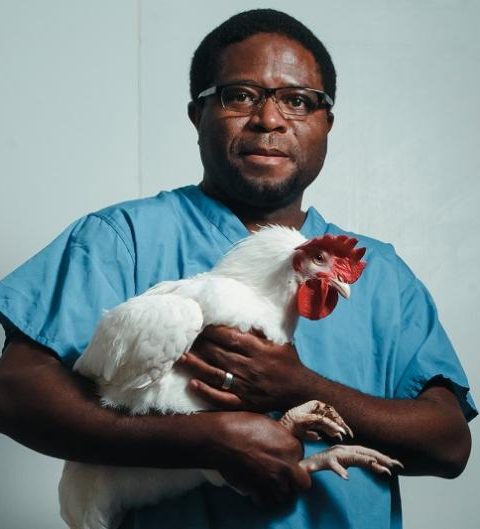Disease is a major problem. Herds are routinely decimated, with huge animal welfare implications and devastating consequences for the farmers and communities that rely on them.
Another problem is that hardier breeds adapted to warmer climates are often not the most productive. While breeds that have been selected over centuries for their bountiful productivity often fare poorly in dry, arid and disease-prone conditions. A typical cow in Africa produces around ten times less milk than a typical British cow.

“We’re aiming to leverage technologies and innovations that have been successful in advanced economies, as well as cutting-edge research outputs, and apply them in less developed tropical production systems. In the UK cattle and sheep industries, for example, genetic tools are routinely available to breeders and farmers, helping them to improve the health and productivity of their stock. We don’t have that in many low- and middle-income countries at the moment and the ambition is to change this.”
Professor Appolinaire Djikeng, CTLGH Director (pictured right)
At the new Centre, teams are developing genomic tools and associated resources to improve tropical livestock productivity – such as milk yield, growth, meat and egg production – in breeds used in tropical production systems. Researchers are exploring the genetic diversity of chicken breeds and carrying out performance analysis to identify birds that thrive in tropical environments, such as heat and altitude.
When they find an animal that consistently performs well, they collect biological samples and performance data to find out what sets that individual apart from others that do not. All of this information can be used to develop tools to identify the best animals to breed from. The teams eventually hope to use gene-editing techniques to produce animals with desired characteristics. This technology has the potential to speed up the selective breeding process, such that gains that have been made in the West over several decades could potentially be achieved within 10 years.
It is a very personal mission for Professor Djikeng, who originates from Cameroon. He spent more than 10 years forging a successful scientific career in the US before being drawn back to Africa and now to this role.
“I wanted to move away from blue sky research and work on something that will have a direct impact on improving human health and agriculture in Africa,” he says. “I feel fortunate to be in this role, not least because Edinburgh is one of the best universities in the world, but because there is a long history of mobilizing UK scientific excellence for international development.”
This article was originally published by the University of Edinburgh as part of the 2017/2018 Annual Review. Read the full story here.
